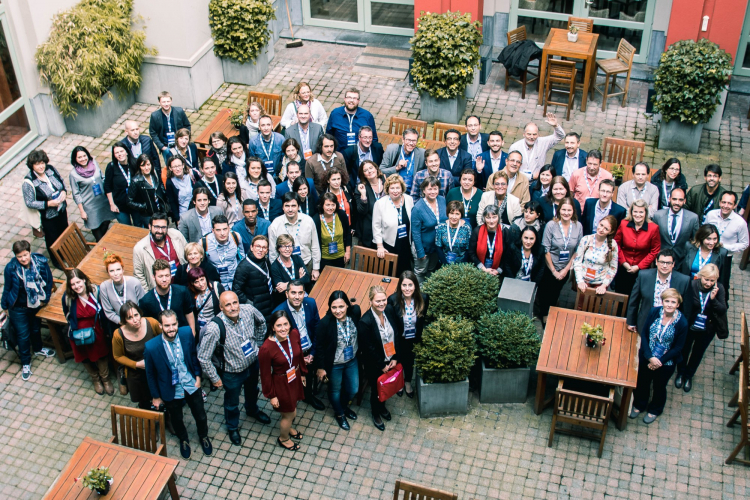Fast digital presentations, lectures, interactive sessions, a high quality networking and spaces to generate new projects and new ideas are the stars of this conference.
More than 70 organizations from 25 different countries. Responsible for telecentre networks and digital projects from all over Europe came to Ghent, with the aim of exchanging information, views, perspectives and new ideas to address the future of Europe more digital than ever.
Conferences and lectures
The 2016 edition featured the presence of very prominent people, such as the Belgian Minister of Development Cooperation and the Digital Agenda, Mr. Alexander De Croo, who confirmed his government's commitment to develop digital skills all as one of the main pillars of Digital Belgium.
Governments believe that to ensure that all benefit from digital opportunities is enough to put the infrastructure in place - the network computer. This must change! Education throughout life is the infrastructure of the future, governments must invest in it, "said Mr. De Croo.
The new digital skills develop in future jobs, such as communication and critical thinking were also protagonists of the conference. Several speakers made reference to the changes that are being implemented in the workplace such as Saskia Van Uffelen from Ericsson Belux, Karsten Simons from Cisco Networking Academies and Martine Tempels from the Belgian telecommunications company Telenet.
The microconferences were also a strong point of the day, with the Lightning Talks, where various projects were presented.
Exchange sessions and participation
Throughout the conference, we enjoyed many dynamic spaces, such as the workshop Future trend spotting, which focused on the participants in the technologies of the future, as these modify the jobs and how telecentres can play a very significant role.
How to... The workshops featuring experts that are members of Telecentre Europe, who have faced different challenges as explained very specific, while transferring its "know how" to other participants. Thus, the "How to run an hour of coding", "How to run a hackathon" or "How to run a service of digital storytelling for migrants", attracted the audience.
Other areas were very prominent "Unconference" on digital competences, entrepreneurship, or Open Data and the European project I-Linc.
A program of more than two days full of contents and success of participation. Barcelona 2017 will be a challenge!



